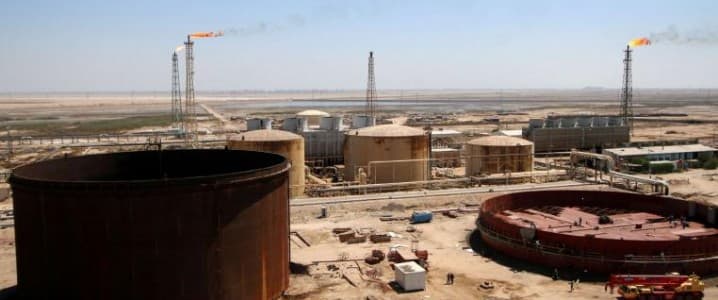Iraq Oil Expert: Baghdad Shouldn't Replace Oil With Renewables

It is not in Iraq's best interest to adopt renewable energy at the expense of fossil fuels, energy and oil expert Hamza al-Jawaheri told local Shafaq News Agency in an interviewon Monday.
Iraq, OPEC's second-largest producer behind Saudi Arabia, has been suffering from power outages and disruptions due to a lack of investment in its transmission grids. Iraq also relies on electricity and natural gas imports from neighboring Iran for its power supply and has received waivers from the United States to continue importing electricity from Iran despite the American sanctions against Tehran.
"Iraq is an oil-producing country. It supplies 12% of the world's needs. It is not in its best interest to adopt renewable energy resources," al-Jawaheri told Shafaq News Agency.
"Iraq's economy is rentier that relies on oil to fund its treasury. Promoting alternative energy is not the optimal choice to address the power issue in Iraq," the energy analyst was quoted by the news agency as saying.
According to al-Jawaheri, solar energy installations are useless in urban areas, as well as "four times more expensive than fossil oil."
Ahead of the visit of Prime Minister Mustafa Kadhimi of Iraq to the White House on Monday, a senior U.S. administration official said that "we have a huge climate agenda with the Iraqis which I want to highlight. USAID funded technical assistance for renewable energy and climate adaptation with a figure — monetary figure I just can't announce yet."
Last month, Masdar, a subsidiary of Mubadala Investment Company of the United Arab Emirates (UAE), signed a strategic agreement with Iraq to develop solar photovoltaic (PV) projects in the country with a minimum total capacity of 2 gigawatts (GW).
"The Government intends to increase and enhance the national production of clean energy," Ihsan Abdul Jabbar Ismail, Minister of Oil for the Republic of Iraq, said in a statement in June.
"Iraq is targeting 20 to 25 percent of energy coming from renewable sources, rather than fossil fuels, equivalent to 10 to 12 GW. This agreement with Masdar, a global leader in renewable energy, is an important step in the development of the clean energy investment sector and the exploitation of solar energy in Iraq," the minister added.




